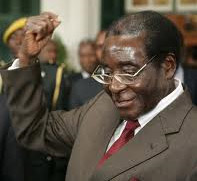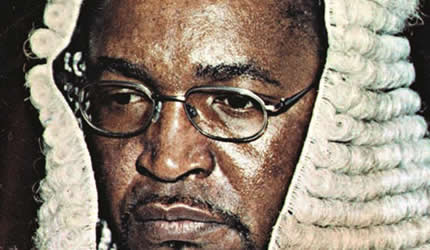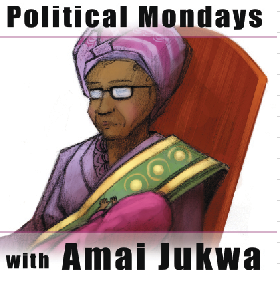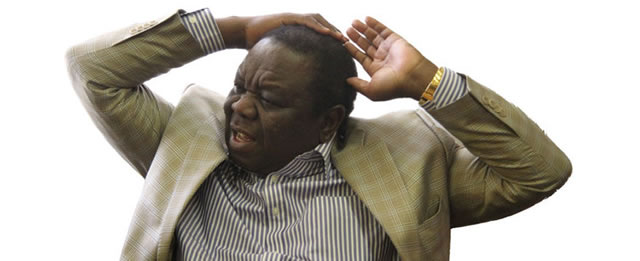Zanu-PF: The five-horned beast
These words perfectly capture the essence of what now stands before us. The first is an emerging five-horned electoral beast made even more vicious by the wounds of 2008. The second issue is one of effectively communicating what already is.
The five horns
- The MDC-T has made it clear that it will seek to reverse the indigenisation programme if they take office. Their clarity, rare as it is, is admirable. Zanu-PF’s position is equally clear that Zimbabwe will continue to take a 51 percent stake. The status quo of foreigners shipping out billions of dollars in profits from African resources is being arrested and that prosecution begins in Zimbabwe. All companies will be brought into compliance.
- Zanu PF’s position on the issue of legalising homosexual marriage is clear and unqualified.
- The position of the party as regards the irreversibility of the Land Reform programme and on the compensation of white former farmers is equally lucid. It cannot be said that Zanu-PF has not explained the role of sanctions in the decimation of our economy. Indeed the party has called for the removal of these sanctions with perfect consistency while others in past times swore on oath that sanctions had no effect on the generality of the people.
- l The final horn is perhaps the sharpest and its impaling power most fatal. This is the juxtaposition of our principals. The man Morgan Tsvangirai embodies what the MDC-T stands for. In the same way, Robert Mugabe is the face of the Zanu-PF election manifesto. Zanu-PF will ride the wave of his legacy.
The efficacy of your theory
Enunciate. Speak clearly. Be understood. Let there be a meeting of the minds. This much is the only work that remains before us.
The MDC-T’s Eddie Cross is on magnetic record as saying that 10 percent of our population is homosexual and as such we must allow for homosexual liberties. Tsvangirai himself, in an interview with the BBC, called homosexual marriages a human right. Zanu-PF disagrees. I imagine that the people of Zimbabwe share our protestations.
In contrast to the MDC-T’s commitment (both declared and undeclared) to homosexual rights is the unwavering position that has been articulated by the President that we will not enshrine such ungodly acts into law. The position of Zimbabweans and the church has been clearly expressed in opposition to homosexuality.
However, the MDC-T is unable to free itself from the donor strings in which it is hopelessly entangled and as such has been forced to take a position that is in violent contradiction to the will of the majority.
The justice of the Zanu-PF cause is clear in this matter and in perfect alignment with the will of the majority. Enunciate. Speak clearly. Be understood. Let there be a meeting of the minds. This is all that remains.
The sanctions story remains untold, it paints a quite clear fact-based picture of the MDC-T’s dishonesty and their complicity with enemies of the Zimbabwe Land Reform agenda. While ZDERA and a host of other clandestine sanctions ravaged our economy the MDC-T maintained that there were no sanctions against Zimbabwe. They said it again and again, defending external forces that had rallied together to punish the country for daring to take back lands that had been stolen from our people by their white kith and kin.
It is the story of a people so desperately hungry for power and entirely lacking in integrity that they were ready to make the economy “scream” in the hope that so great would be the despair that they would ascend to power on the back of a protest vote. It becomes all the more interesting when one reads those juicy cables in which dearest Morgan begs the American Ambassador to keep the sanctions furnace burning and admits that his public demands that they be lifted are just for show.
What is worse still is the fact that they campaigned for the imposition of these sanctions.
But how does one explain such complicated and intricate details to a seemingly disinterested generality? Enunciate. Speak clearly. Be understood. Let there be a meeting of the minds. This is all that remains.
Zimbabwe cannot be asked to reward thieves with compensation.
Britain agreed to carry the burden of compensation at Lancaster. They reneged on this promise. Zanu-PF has rejected the idea of taxing ordinary Zimbabweans to pay white former farmers and the position has been declared at numerous times.
When the Boer-controlled Sadc tribunal attempted to subvert the sovereign will of Zimbabwe, Zanu-PF made it clear that it rejected the decision of that court. The Land Reform programme was a morally just cause not subject to vagaries of creative judicial interpretation.
The MDC-T has made no such declarations. Instead they actually promised white former farmers that they would be allowed to “go home” if the MDC-T comes to power. What is especially curious is that the MDC-T has never given a clear public message demanding that the British honour their obligations as per the Lancaster House agreement.
Knowing where their donor bread is buttered it would be foolish to expect them to do this. These are issues that go to the very core of Zimbabwean politics. The question for the nation at large and land beneficiaries in particular is whether or not the MDC-T can be trusted to safeguard the gains of the Land Reform programme.
The answer is an emphatic NO!
Would the resettled farmer answer with similar readiness? He must. The information must be made plain so he can. The resettled farmer must understand what the stakes are. Again I say, enunciate. Speak clearly. Be understood. Let there be a meeting of the minds.
When the learned professor Jonathan Moyo introduced sweeping media reforms demanding greater local content, there was not a small protest within opposition ranks. The policy was resisted by those of limited imagination who lacked the capacity to appreciate the impact such a policy would have in spurring the local music industry. Today we are enjoying the fruits of that policy.
Home-grown musicians such as Winky D, Nox and Munetsi have come of age. The Urban Grooves movement is now producing a constant stream of quality music. All this is the fruit of policy that brought mild discomfort at the time but whose benefits cannot be denied.
Such is the nature of good policy. It is often accompanied with discomfort.
Consider the Land Reform programme. As the new farmers grappled with their inexperience and the Government, struggling under the weight of sanctions, failed to fund them, it brought some considerable discomfort.
13 years later we are recording extraordinary tobacco harvests and even Western academics are now accepting that the policy has been a success and are authoring books to that effect. Such is the nature of good policy; it often comes with a measure of discomfort.
This brings us to the fourth horn, indigenisation. What does it mean? What benefits will it bring to the country? How will the generality benefit? How long will it take for these benefits to accrue?
What are the ideological justifications for this policy? The MDC-T has already made it clear that they would reverse all progress made in the current indigenisation drive.
Their record is quite clear.
At one time they supported it, then turned against it, then supported it again before finally turning against it. It is the story of amateurs who really have no firm grasp on policy. It is a party that lacks ideological identity.
The most important point is that in the same way that the MDC vowed to reverse Land Reform and viciously opposed the efforts to support local artists, they are now equally kicking against indigenisation. They demand to see money today; they want to see results today. If these are not immediately forthcoming then their view is that a policy is not beneficial.
I called them amateurs.
The real battle is one of effectively communicating this to the electorate.
Let there be a clear understanding of all the factors that are at play. Zanu-PF need not reinvent itself; its record already speaks volumes.
What remains is to enunciate. Speak clearly. Be understood. Let there be a meeting of the minds.
The fifth horn is a kind of self-impaling by the MDC. This is a juxtaposition of characters.
Robert Mugabe is stood in painful comparison to Morgan Tsvangirai.
A statesman with impressive liberation and academic credentials is held against a man of little standing. While Robert Mugabe can point to a consistent record of principled leadership, Morgan Tsvangirai is held ransom by his own notorious flip-flopping.
While the President stands as a model of decency and discipline, Tsvangirai comes across as an obese philanderer who is unable to tame his appetites both at the plate and in the bedroom.
The one man is a hopeless puppet while the other is an acclaimed nationalist. The choice is for Zimbabweans. The Zimbabwean story is a complex one with so many nuances as to be difficult to understand.
This is the real challenge in this election, skilfully telling the Zimbabwean story. The story must be told in an exciting, memorable and easy to understand language. This is the only challenge. Enunciate. Speak clearly. Be understood. Let there be a meeting of the minds.
Once the people of Zimbabwe have heard the true story then the direction of their vote will be very much certain.
l Amai Jukwa is a loving mother of three. She respects Robert Mugabe, is amused by Tsvangirai and feels sorry for Mutambara. She plays on Facebook and Twitter.










Comments